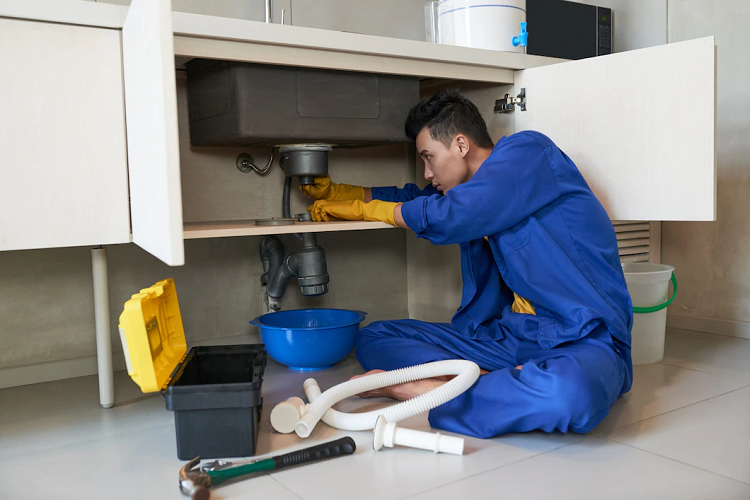A blocked drain can be unpleasant to live with. There can be a bad odor throughout the home, the inability to use a sink and toilet or there can even be outside overflowing water. The problem has to be dealt with quickly so that it does not get any worse.
But, the one problem many people have is figuring out who owns the drain. Perhaps it is not clear whom this outside drain belongs to and nobody seems to be acting on it. Maybe you are renting a property and you are not sure if it is your place.
Who is Responsible for Clearing Blocked Drain?
Here are some tips to find out who is responsible for the blocked drain and who should call professional services.
Owner of the Home
If you are the owner of your home and discover a blocked drain, the answer to this question is pretty simple. Of course, as you would expect, if a drain is classed as being on your property, this means that maintaining them is going to be your responsibility. You should work out if you think there is a blockage and not hesitate to call an expert team in to solve the problem. The longer you leave this issue, the worse it is going to get. Blockages do not clear themselves and even though it might be outside, you can feel the effects of this inside your home too.
Depending on the severity of the blockage, you can arrange an appointment with a drainage company or choose an emergency callout. For example, FS Drainage operates 24/7 and 365 days of the year. This means that you can arrange an appointment for the blockage to be resolved and at a time that suits you. To find out more, visit their website. The team operates in the London area and at competitive prices with a low-cost guarantee. This is something that owners look for since they have to pay to have the blockage cleared.
Renting a Property
If you are currently renting a property and have a blocked drain, you might not be sure what to do. Should you call your landlord or the drain unblocking services by yourself? Well, remember that you do not own the property. Therefore, it is not going to be your responsibility to fix the drains. Instead, this is something that the landlord or owner needs to do. But, you will need to make them aware of this problem so that they are able to do something about it.
You should always make sure that you check your tenancy agreement. There might be some terms and conditions in there that would apply to this type of situation. For example, if you have caused the blocked drain through recklessness, this may mean that you have to contribute to the expense and bills of having them unblocked.
Shared Drains
There are instances where there are going to be shared drains. For example, this can happen in apartment complexes. In this case, a management company might be in charge of having the drains maintained. The price of the services will usually be taken from maintenance fees that all of the people living there pay.
You might have to advise the management company that there is an issue with a drain. But, it should not be your responsibility to pay more money for this or arrange the appointment. This should be done by that team. You will be responsible if there are individual drains. But, if they are shared with a building, the onus does not fall on you to pay.
What Could Cause a Blocked Drain?
There are a number of reasons why a drain can become blocked. Often, this is due to the mistakes that people living there make. But, there can also be instances where the environment can affect the drains. This can be due to growing tree roots or a lot of leaves and plants causing a blockage.
Drains inside the home can often be blocked by food debris, as well as fats and oils. These end up going down the drain and sticking to the pipes. They build up over time and can create bad odors, as well as sticky blockages. What’s more, the bathroom can be a bad spot for blocked drains. Hair can gather together and clog a drain. There can also be items flushed down the toilet that should not be. This includes sanitary products and wipes.




